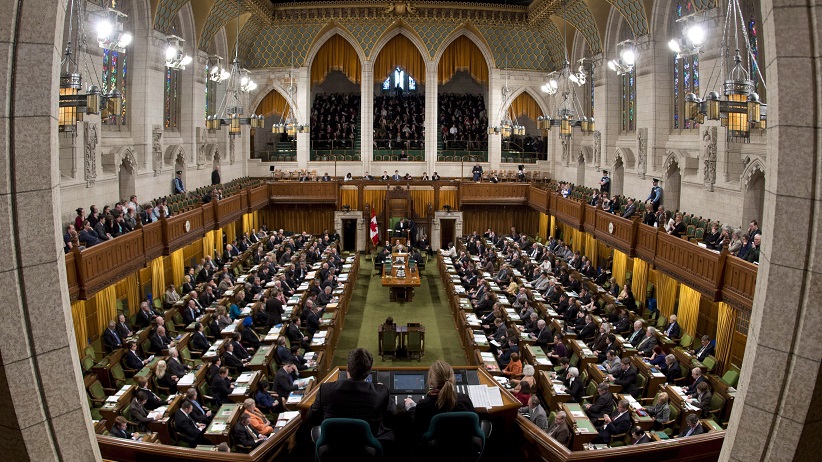Must-see QP: Front-line workers good, back-office bureaucrats bad
Your daily dose of political theatre
Share

Maclean’s is your home for the daily political theatre that is question period. If you’ve never watched, check out our primer. Today, QP runs from 2:15 p.m. until just past 3. We livestream and liveblog all the action.
The must-see moment
Imagine a line drawn down the middle of your office. On one side are desks belonging to everybody who serves clients directly. On the other side is everyone else. The federal veterans’ affairs department isn’t dealing with that literal situation, but the government is marking a clear division between front-line workers and “back-office administration.” Cutting jobs that help veterans is politically poisonous. Cutting everything else, says everyone on the Tory front bench, simply reduces bureaucracy.
The government’s problem is that, after carefully sketching out that argument, a simple scan of departmental records suggests that front-line workers are—oops!—on the chopping block. The Canadian Press’s Murray Brewster reported his calculations.
Departmental performance reports stretching back to 2009 show that roughly 897 positions have been eliminated across Veterans Affairs, with 33 per cent coming out of the section that administers pensions and awards.
Those same records show the health and rehabilitation branches also took a sizable hit — roughly 372 positions during the same time frame.
Commemorations, the division that celebrates past wars and maintains memorials, was reduced by 17.2 per cent, while internal services — Prime Minister Stephen Harper described it last week as “backroom administration” — lost 71 positions, just 10.1 per cent.
This afternoon, NDP MP David Christopherson wondered what Veterans Affairs Minister Julian Fantino, a cabinet minister hanging onto his job by a thread, had to say for himself. Fantino responded with a few examples of back-office cuts. The department is no longer asking veterans for snow-clearing receipts, he said. That cleared away 100 bureaucrats. The department moved to digitized medical records. That made a dozen photocopying clerks redundant.
What might help Fantino’s case is a full list of those examples—every job loss, with an accompanying job description—that’s made the department more efficient without sacrificing service levels. He seems to have the information on hand. That kind of disclosure could let every parliamentarian decide for themselves the wisdom of massive, multi-year Tory cuts to veterans affairs.
The recap
The context
Ottawa reacted to Abu Anwar al-Canadi’s threats of “indiscriminate attacks” against Canadians. The threats, broadcast over the weekend on YouTube, featured an apparent Islamic State fighter who formerly identified as John Maguire. The 23-year-old militant, who reportedly hails from Kemptville, Ont., called recent attacks on Canadian soldiers a direct reaction to CF-18 contributions to coalition airstrikes in Iraq. Today, CityNews and Rogers Radio reporter Cormac MacSweeney caught up with Justice Minister Peter MacKay and Liberal MP Wayne Easter on Parliament Hill. They took Maguire’s threat seriously.
Parliament Hill is already packed with frayed nerves after a gunman tore through Centre Block on Oct. 22. No doubt that, during the final week of question periods before an extended Christmas break, everyone who works on the Hill will have security in the back of their minds.